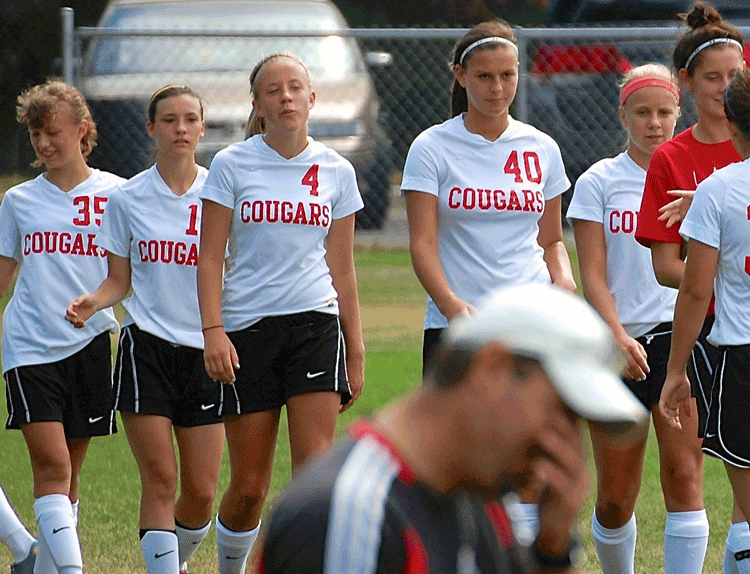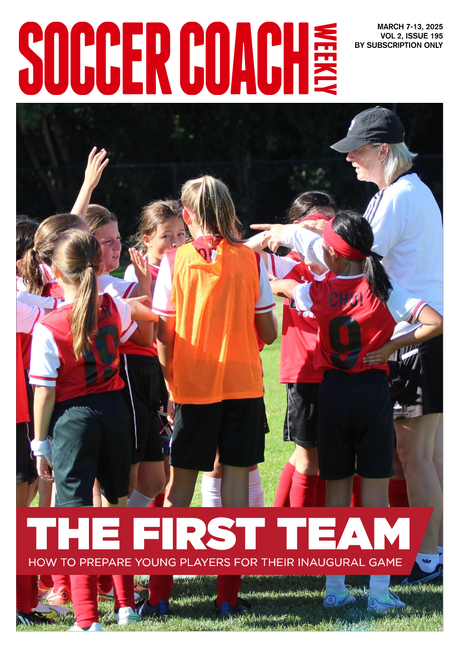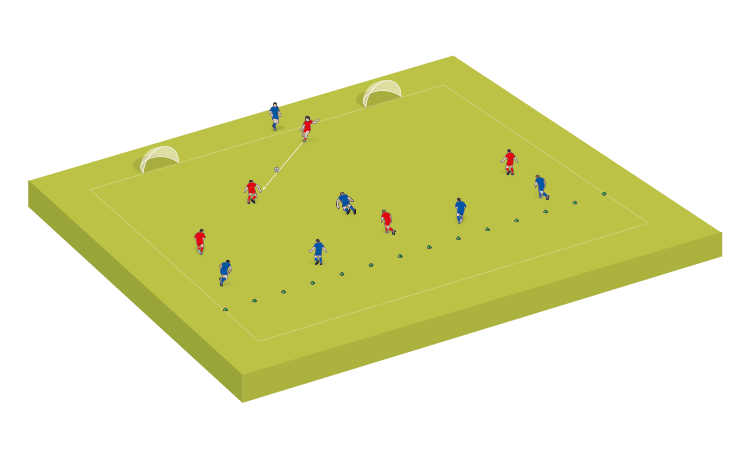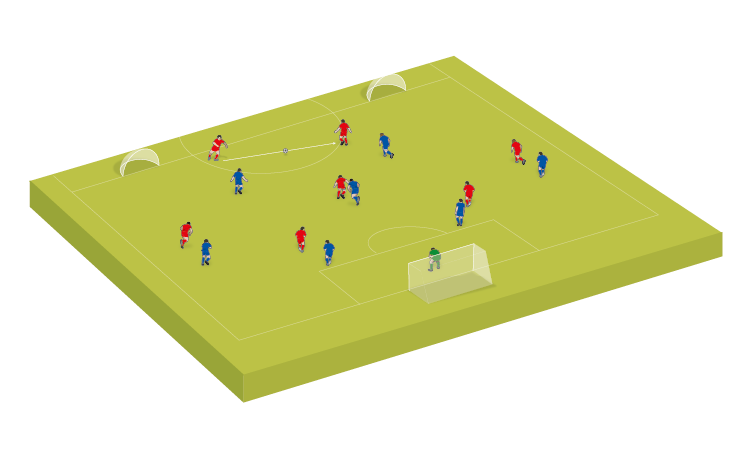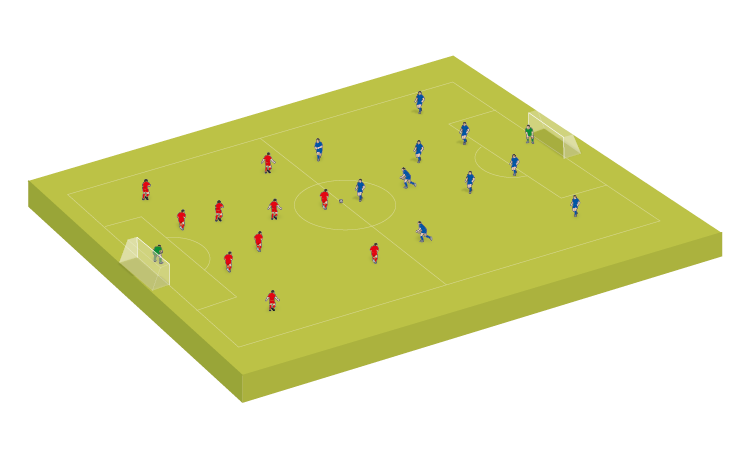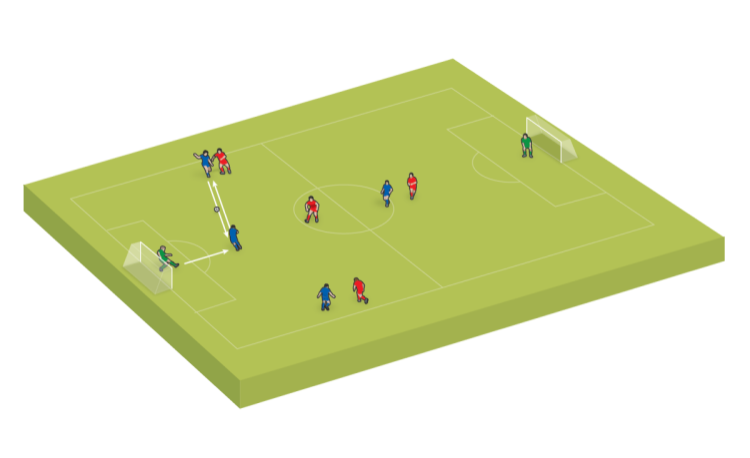Four lessons to learn from losing
Coaching Adviceby Dave Clarke
How your team deals with defeat can have important repercussions on how they perform in the next match. Here are four ways to rediscover the winning formula and the reason losing can be a step forward.
How your team deals with defeat can have important repercussions on how they perform in the next match. Here are four ways to rediscover the winning formula and the reason losing can be a step forward.
1 EMOTIONS ARE OKAY
You shouldn’t deny children the opportunity to show their emotions when they lose but make sure they know where the boundaries are. Set standards of behaviour and have sanctions if players don’t follow them. For example, showing dissent towards a team-mate or to the referee means they start the next game on the bench. They will soon learn to control their emotions and learning to lose graciously is one of the most important lessons any young sportsperson can take on-board.
2 STAY COOL AS A COACH
While it can be okay for the team to show emotions, you cannot expect your players to accept losing if you don’t yourself. You need to keep your emotions under wraps. It is often easy after a game to look for excuses but it is a lot harder to look at yourself and your players to ask: “what could we have done better?” Young players learn a lot from losing provided they can accept it and, in a basic way, analyse why they lost and what they can do to improve next time.
3 HAVE A POST-MATCH ROUTINE
Introduce a post-match routine that players adhere to – win or lose
For instance, you could encourage them to shake hands with opponents, and the referee, as soon as the final whistle sounds. A routine like this led by the captain can have a really positive impact on helping players coping with losing and accepting defeat graciously. Only after they have shown respect to the victors should the coach gather them into a huddle and speak to them.
4 ENCOURAGE POSITIVITY
Always acknowledge the disappointment of your players and show them sympathy, but emphasise the positive elements of the performance. It is important that players go home with a positive mind-set after the game. They should know, despite the result, that they have achieved and learnt something. Make them understand that improvement starts from this moment, and that although they cannot win the matches they have already lost, they can now focus on winning the next fixture. As it is often said, you only fail when you give up.
5 MAKE RESPONSIBILTY COLLECTIVE
Soccer is the ultimate team sport and no one individual is ever responsible for victory or defeat. If you have any blamers in the squad, identify them quickly and speak to them on their own about their attitude and the effect it is having on the team. Try giving them responsibilities too, turning them into motivators instead of blamers. It’s then their job to go straight over to a team-mate who has made a mistake and get that player’s head back in the game.
6 TAKE THE FOCUS OFF WINNING
If you are going through a bad patch of results, one way of keeping players motivated and focused is to de-emphasise winning and focus on improving skills. After a defeat, if you make your next match a ‘must win’ game, you are heaping more pressure on your players than is needed. Instead, try setting the team realistic goals within the game. For example, tell them that his week you want to see the players pressing higher up the pitch or making more first-time tackles. This means if the team achieves its goal, they win – regardless of the result.
Newsletter Sign Up
Coaches Testimonials

Gerald Kearney, Downtown Las Vegas Soccer Club

Paul Butler, Florida, USA

Rick Shields, Springboro, USA

Tony Green, Pierrefonds Titans, Quebec, Canada
Subscribe Today
Discover the simple way to become a more effective, more successful soccer coach
In a recent survey 89% of subscribers said Soccer Coach Weekly makes them more confident, 91% said Soccer Coach Weekly makes them a more effective coach and 93% said Soccer Coach Weekly makes them more inspired.
*includes 3 coaching manuals
Get Weekly Inspiration
All the latest techniques and approaches
Soccer Coach Weekly offers proven and easy to use soccer drills, coaching sessions, practice plans, small-sided games, warm-ups, training tips and advice.
We've been at the cutting edge of soccer coaching since we launched in 2007, creating resources for the grassroots youth coach, following best practice from around the world and insights from the professional game.
